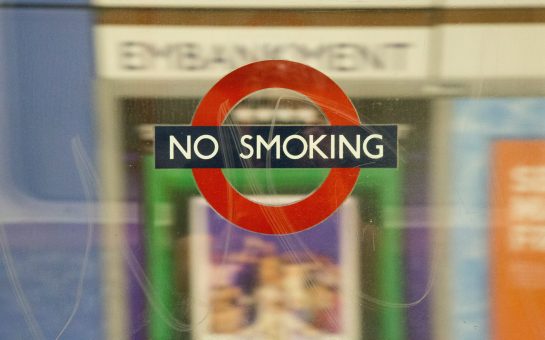One in three medical students plans to leave the NHS within two years of graduating, either to practise abroad or to pursue another career, according to a new survey.
Some of the biggest drivers of this dissatisfaction were pay, work-life balance and working conditions within the NHS.
Of the 10,486 medical students who took part in the survey, which covered 44 medical schools and ran between January and March 2023, only 17% said that they were “satisfied” or “very satisfied” with the overall prospect of working in the NHS.
Morgan Bailey, 20, a third-year medical student and secretary to the Medical Students’ Association at King’s College London, was one of the survey’s respondents.
He said: “I think it’s not really shocking.”
“We already know that a lot of doctors once they’ve graduated medical school and they’ve gone into their registrar speciality training tend to leave the NHS.”
Training and pay
The UK has 3.2 doctors for every 1000 people, the lowest number per capita of any European country in the Organisation for Economic Cooperation and Development (OECD).
As a result, the Government has tried to increase recruitment into the NHS by opening new medical schools and expanding the capacity of existing ones.
But without retaining staff, these efforts may fall on deaf ears.
Although it is great to hear about the Government increasing medical school places, the big issue on students’ minds is pay and the quality of training, Bailey said.
He said: “Frankly the quality of training is not as good as it used to be because the NHS is just under pressure.”
The role of management and politicians in telling doctors what they should be doing has also left them feeling powerless, like “another cog in the system.”
Overwhelmed and exhausted
The findings also didn’t surprise Haider Nazerali, 23, a medical student at Imperial College London who is currently taking a year out from his studies to work as the president of the School of Medicine’s Student Union.
He said: “I get anecdotes from my peers telling me about how they spend time both being very excited when they’re studying the material and in certain procedures, but then other times, they’re disheartened when they’re talking to staff and they are burnt out and tired.”
In his current role, Nazerali often hears students’ concerns and noticed that things seemed to get worse after the COVID-19 pandemic.
He said: “The perceived thanklessness when it came to pay for doctors after that and the large number of strikes and pay disagreements since then have made a lot of people more wary about working in the NHS.”
Job prospects
Nazerali would like to become a surgeon, but stressed that the training pathway is longer in the UK compared to other countries, such as the US.
There is also fierce competition for places in speciality training and consultancy, leading to “tight bottlenecks” within the system, he said.
Bailey said: “Theoretically everyone should have a job at the end of medical school, but we’ve seen during COVID that a lot of people once they’ve graduated don’t actually get jobs.”
With no guarantee of a job at the end of training, graduates are often left with little choice.
Bailey said: “Effectively you have to wait for someone to either retire or die.
“Or, you can basically uproot your life and then go and become a consultant in the far reaches of the UK.”
Originally from Wales, Bailey believes that he has a greater chance of finding a job there than in London. But not everyone has this choice.
He said: “If you have a life in London, let’s say you get married during your foundation years or you buy a house, you might not get a job in London as a consultant.
“So you’re stuck as a registrar really with the knowledge and expertise of a consultant but you’re stuck on the same responsibility and pay as a registrar would be and that’s sort of not fair.”
It is therefore understandable that many decide to move abroad.
The survey found that students were most likely to want to move to Australia, followed by New Zealand, the USA and Canada — a sentiment that is shared by many of Bailey’s friends.
Tough decisions
Nazerali will most likely stay in the UK to do his foundation and speciality training after graduating, but not because he has any particular affinity for the way things are taught or the pay and the quality of work here. Instead, a big influence for him is his family and community.
He hasn’t decided yet what he wants to do after, however, he is currently leaning on the side of leaving, unless something significant changes.
Bailey thinks he’ll stay in the UK, but that doesn’t mean that he isn’t unhappy with the system.
He said: “The only reason I don’t want to move is because I do like the country, I do like the NHS and I want to work here,” he said.
“This is where my life is, where my family is.”
Dr Latifa Patel, chair of the Representative Body of the British Medical Association, said that the Government cannot continue to turn a blind eye to this increasingly untenable situation.
“This study clearly shows that increasing medical school places alone is not enough to turn the tide on the growing workforce crisis,” she said.
“It is not too late to fix this, but the power to do so rests with the Government.
“Retention must be prioritised, and plans must address pay restoration, career progression and working conditions.”
The research is published in the journal BMJ Open.
The Department of Health and Social Care have been approached for a response.
Featured image credit: Nicolas J Leclercq via Unsplash.com





